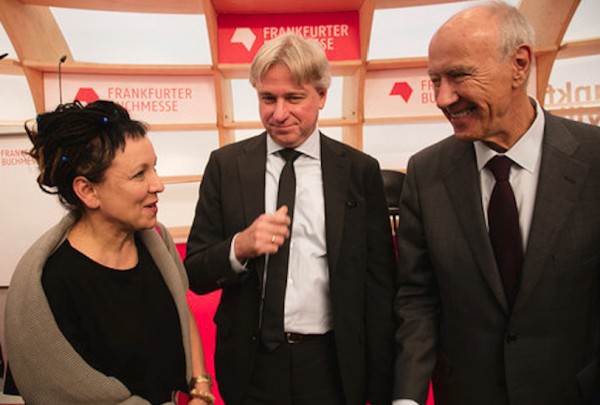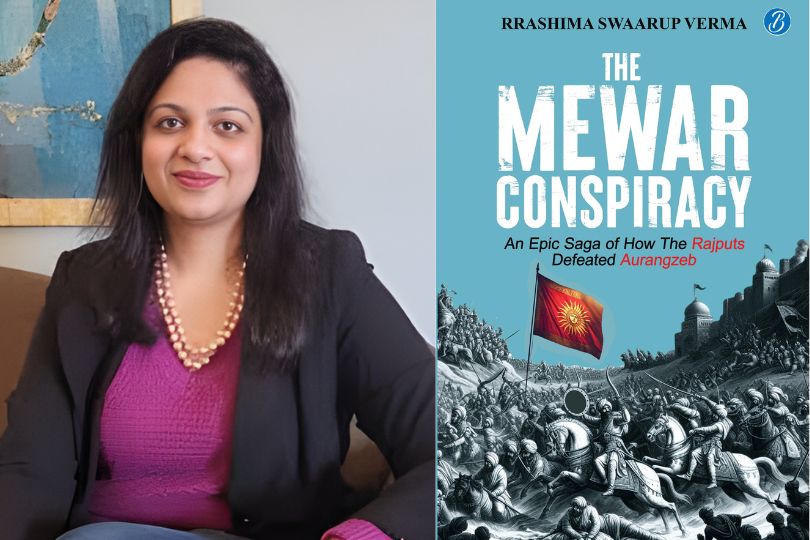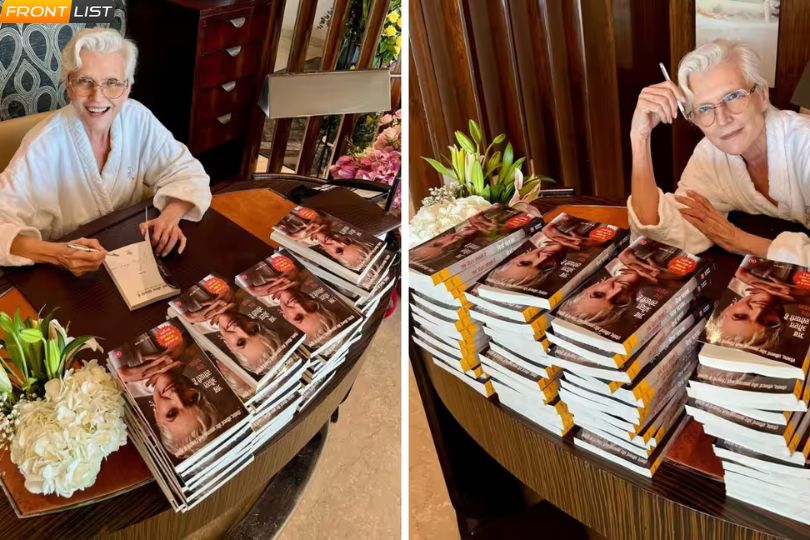Frankfurt Book Fair 2019: Nobel Winner Olga Tokarczuk Speaks of Unity
Frankfurt Book Fair 2019: Nobel Winner Olga Tokarczuk Speaks of Unityon Oct 17, 2019

In her remarks at the 2019 Frankfurt Book Fair opening press conference, Nobel Prize-winning Polish author Olga Tokarczuk spoke of the power of literature to unify a world that is fraying along political and nationalist lines.
“I believe in literature which ties people together, that highlights what people have in common, despite the differences—color, sexual orientation, or anything which may separate us on the surface,” Tokarczuk said. “I believe in a kind of literature which makes clear that, at a deeper level, below the surface, we are tied together through invisible but existing threads. A kind of literature which talks about a lively, ever-changing world of unity, of which we are a small, but not insignificant part.”
Tokarczuk (who was profiled by PW in August) was named the 2018 Nobel Laureate for literature last week, while she was on tour in Germany, and was a last minute addition to the Frankfurt Book Fair’s schedule. She is the author of the Man Booker International Prize-winning novel Flights (published in the U.S. by Riverhead Books) which was also named one of PW’s Best Books of 2018. Her latest novel to be translated into English is Drive Your Plow over the Bones of the Dead (also published in the U.S. by Riverhead). She is perhaps best known in her home country for her 2014 historical novel The Books of Jacob.
Tokarczuk’s Nobel Prize and her appearance at the Frankfurt Book Fair are certainly well timed, coming amid new elections in Poland which saw the country’s ultra-conservative right wing nationalists hold on to power. On Monday, Polish Prime Minister Mateusz Morawiecki told supporters that the election results represented a “huge social mandate” to remake the country—an agenda that has included rejecting the LGBTQ community, and multiculturalism, and has helped put Poland on a collision course with the European Union. Ahead of the election, Tokarczuk, a vocal critic of the government, urged Poles to choose wisely, calling the vote a choice between democracy and authoritarianism.
Asked about the Polish election results at the opening press conference, Tokarczuk tried to sound an optimistic note. “Of course I am not very enthused about the outcome of the election, but I am excited about the new composition of parliament,” she said noting the addition of more representatives from the left. “I think some new things will happen over the next four years here.”
Also offering remarks at the opening press conference, Francis Gurry, director general of WIPO (the World Intellectual Property Organization) spoke of the the need for the world to come together to address some of the challenges presented by technology.
“In this age of technology, there is a paradox: We have never had such technologies of communication, of connection, before, but at the same time there are important signs that the world is de-connecting. And not only is the world is de-connecting, but the idea of international cooperation or multi-lateralism is under attack, Gurry said. There are many examples that we see around the world, particularly the governmental level, where the idea that we should arrive at solutions through a cooperative international movement and discussion is rejected. And it's rejected in favor of a unilateral approach. So I think that's the first thing that I would like to say is that we really should reflect on how we determine the possibilities in our society, and not necessarily let it be determined by technology alone, but by choice.”
Gurry said that WIPO is seeking just such a cooperative approach to identifying challenges intellectually property face in a world awash in data and defined by new technology, including artificial intelligence, that has implications not only for how information is distributed or consumed, but how it is created. “I think we're at the stage of trying to articulate the questions, not necessarily supply the answers,” he said. “Help in articulating the questions would be greatly appreciated.



.jpg)






.jpg)

.jpg)

.jpg)

.jpg)
.jpg)










Sorry! No comment found for this post.